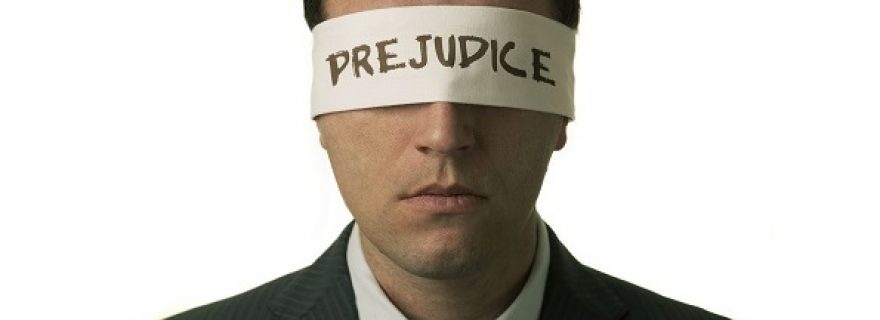Discrimination? Maybe not; Annoying? You bet!
The attacks in Paris made my heart go out to Dutch citizens with a Moroccan or Turkish ethnic background. What influence does all this have on them?
I’m reminded of one of my students, whose parents are Moroccan, who told me that after the Charlie Hebdo attack she would deliberately sit in the no-talking carriage in the train… Just so she wouldn’t constantly be asked what she, as a Muslim, thought about the attacks.
Is that discrimination? No, maybe not. Is it annoying? You bet!
Labelling
Why is it annoying? Why is it annoying, for instance, to be constantly asked “where are you from?” (“From Amsterdam”, “No, I mean where are you from originally?” “sigh… my parents come from Morocco” “Ah!!”) It’s annoying because these sorts of remarks single you out from the rest. They label you as “Moroccan”, and “Muslim”, and we all know that in the Netherlands that means you’re not regarded as being truly Dutch. In the Netherlands, being labelled by another person as a Moroccan or a Muslim, regardless of whether you would identify yourself in that way, is a form of exclusion.
And yes, this is also hurtful for highly educated people, who ask themselves what more they could possibly do to belong. They have a degree, a good job; they think in Dutch, dream in Dutch; Dutch literature feels like their cultural heritage; they combine the respect and love they feel for their parents with Dutch individualism; and they see Morocco as a nice holiday destination, but not more than that. What more could they do to be accepted by society and become part of “we”?
The role of ethnicity: the role of society
Sometimes there’s an expectation that highly educated people will identify less strongly with their ethnic background. After all, they are successful, so why would they want to identify themselves as Moroccan? In fact there are many reasons why they might want to do just that: to honour their roots, to express a love of Moroccan customs, or to bridge the gap with their parents, for instance.
But identifying yourself as Moroccan may also be a reaction to the place of ethnicity and religion in society. If other people are constantly hammering home that you are not really from Amsterdam, but from Morocco; if you’re constantly approached as a Moroccan who has some explaining to do about the attacks in Paris; if you’re in a hurry and want to cross the road at a red light, but realize that may confirm people’s image of “antisocial Moroccans” (in short: if you realize that you are judged not as an individual, but as a representative of a whole group)…maybe at a certain point you’re simply tired of constantly emphasizing in vain that you are, first and foremost, “just Dutch”.
In fact, I’ve noticed that some highly educated people choose to emphasize their Moroccan identity precisely in an attempt to break down negative stereotypes. Because if you’ve got a good job, that makes you the right person to show that “Moroccans” are not all conservative and a problem for society; Moroccans may also be doctors, mayors, consultants, and talented actors.
However, I can also see that it’s not easy for them; that it’s not easy to be proud of your ethnicity in Dutch society. The process is a complicated one. You have to develop a certain self-confidence to be proud of your ethnic background and to articulate it in a self-assured manner. It helps if you’re highly educated and have a good job. So, it’s not that these highly educated people emphasise their part-Moroccan identity despite their level of education, but in part precisely because of their level of education.
This makes clear that the importance of ethnicity for individuals is strongly influenced by the role of ethnicity in society. The way society at large talks about ethnicity – in relation to the question of who belongs and who doesn’t belong – influences individuals’ positions and experiences and impacts on how those individuals choose to present themselves.
The role of society in this is insufficiently recognised. This comes in, for example, when prime minister Mark Rutte lays the responsibility for bridging disadvantage with the disadvantaged themselves, by commenting that the solution for discrimination lies with Mohammed, that it’s up to him to “fight his way in”. A comment of this kind fails to do justice to the processes in society. It comes across as an attempt to avoid responsibilities that surely lie in part with society, and thus also with politics.
Translation: Maria Sherwood-Smith
This is an abbreviated version of the speech delivered by Marieke Slootman on 26 November 2015, when she was awarded the Dutch Sociology Society’s prize for the best sociological doctoral dissertation 2013-2014 for her dissertation 'Soulmates. Reinvention of ethnic identification among higher educated second generation Moroccan and Turkish Dutch' (2014).



0 Comments
Add a comment